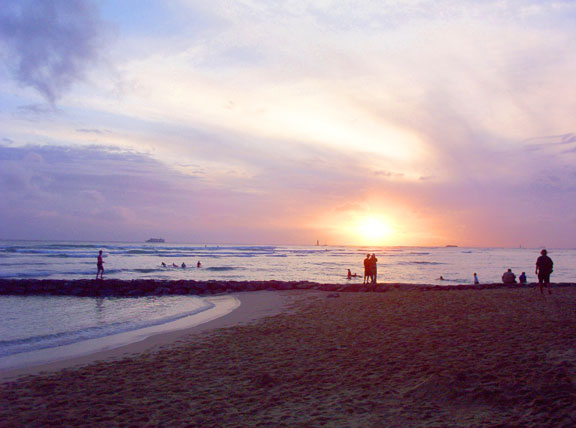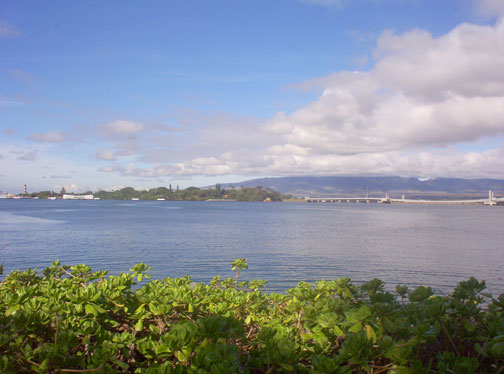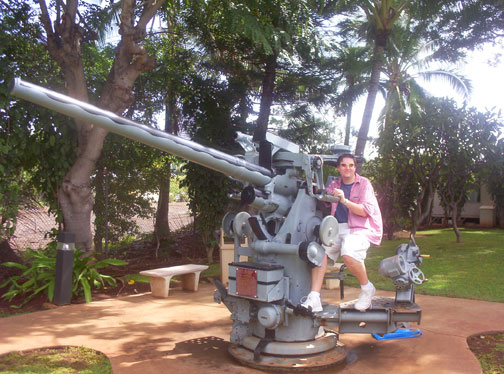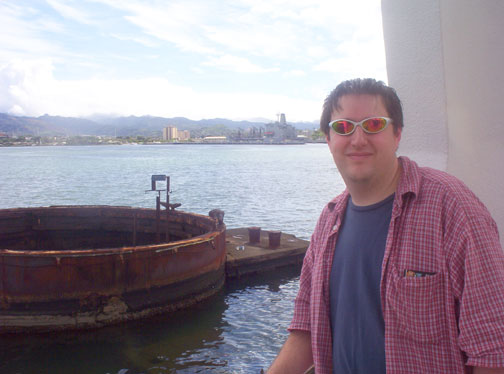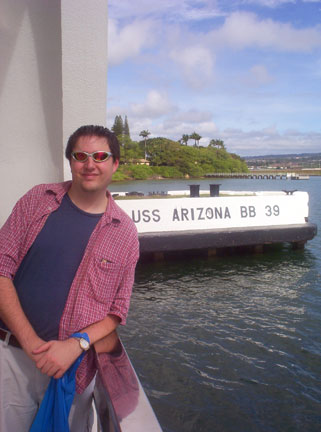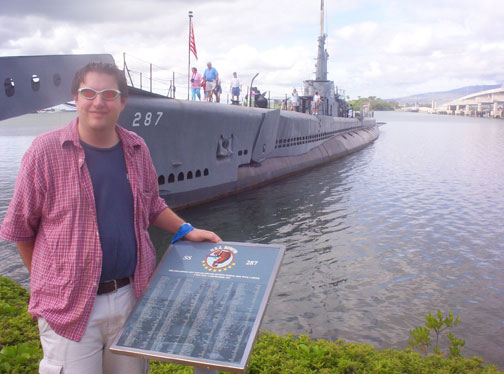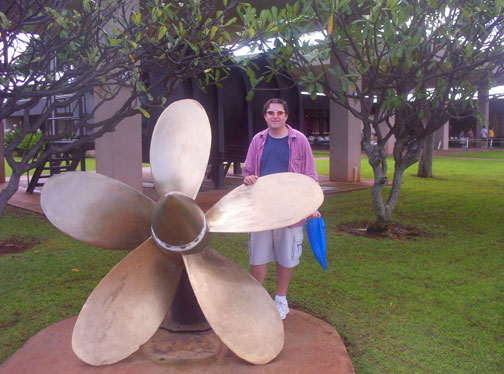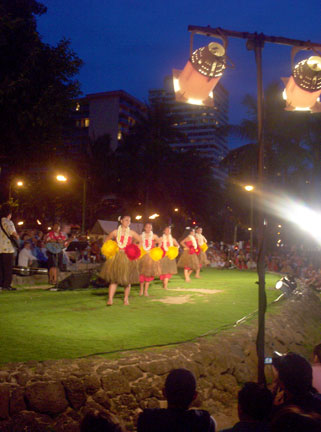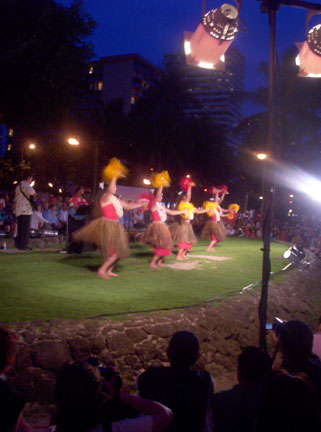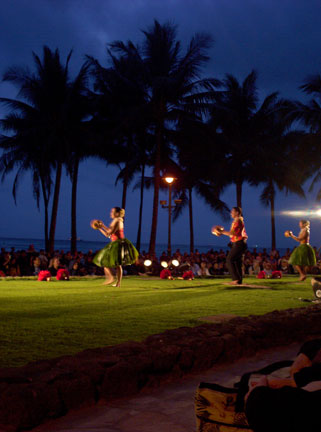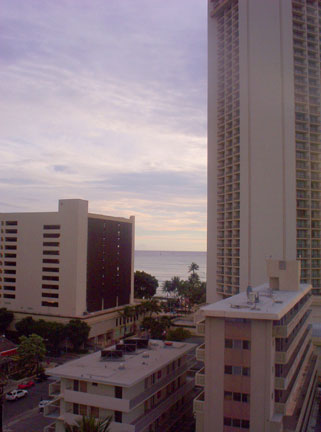Elliot's Trip to
Hawaii
Spring 2006

| Route: |
Travel Time: |
Clockwork: |
| Orlando to Los Angeles to Honolulu |
14 Hours |
7am
Eastern Time to 9pm Eastern Time |
| Honolulu to
San Francisco to Orlando |
13 Hours | 11:30 PM
Hawaii Time 12:30 PM Hawaii Time |
|
A view from the world famous Waikiki beach on our first night in Honolulu. Surfers can still be seen trying to catch waves. | |
|
Pearl harbor is peaceful today. In the distance on the left, you can see the Arizona Memorial. | |
|
A WWII dual-person anti-aircraft machine gun | |
|
At the Arizona Memorial during low tide | |
|
||
|
The U.S.S Bowfin, a WWII Submarine that people can tour. | |
|
A discovered propeller that was detached during the attack on Pearl Harbor. | |
|
Every night on Waikiki Beach, a local
Polynesian Cultural Group put on an hour-long hula show. Each night is a different group, and thus every night a different show. |
|
|
The shows start off the same every night, with the lighting of the torch ceremony. Then is a dance to honor the gods. | |
|
Each night the dancers honor a different Hawaiian island with unique cultural dances and music. Before the Hawaiian islands were united, the different islands were ruled individually. They fought with each other constantly, and used the hula to greet honored guests of the gods. You can see Waikiki beach in the background. |
|
|
A view from the top of our hotel looking towards Waikiki Beach. Our hotel, the Aqua Bamboo and Spa, was literally 1 block off the beach, and thus half the price of the hotels seen in this picture. |
|
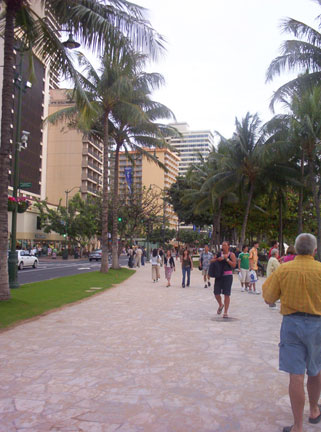 |
Walking down Waikiki during the day. My father is on the right in yellow. | |
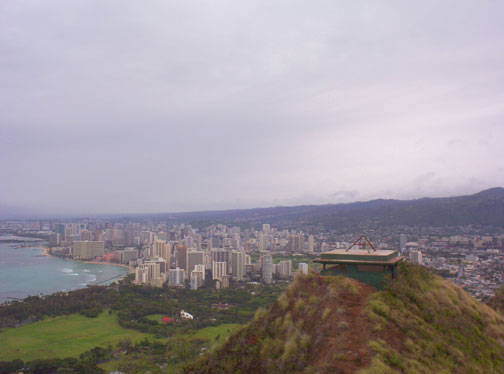 |
Atop the Diamond Head Volcano with a
view of Waikiki in the background.
Around the turn of the century (1900), the U.S. military placed anti-ship cannons atop Diamond Head. They were never used and taken down for WWII |
|
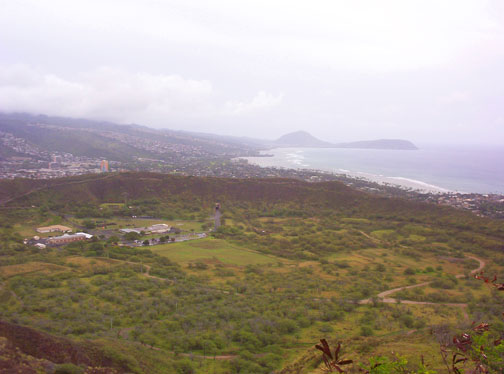 |
To get to the top of Diamond head, you must first pass through the mountain, into the crater. Once passed the former military base, you journey up a long, winding pathway that is just over 2 miles in length. As you get higher and higher, the path becomes steeper and steeper. At the last stretch, it is so steep that you have to hold on to for your life, and at the top you have to crawl through a cannon turret. | |
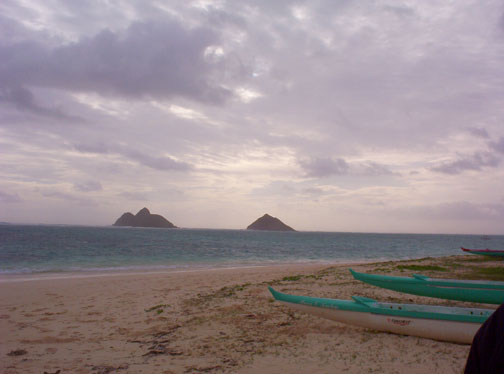 |
A view from Wailua, a suburb of Honolulu on the north shore of the island. The ocean is very shallow and this is where many millionaires live. | |
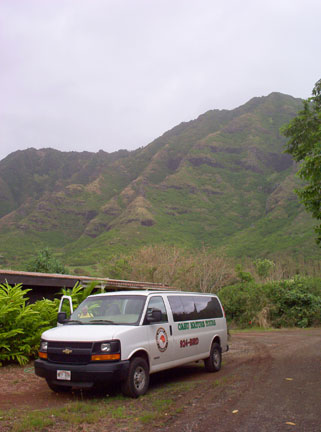 |
We went on an ecological tour of Oahu. Those mountains in the back are remnants of ancient volcanoes on Oahu which have eroded after thousands of years. | |
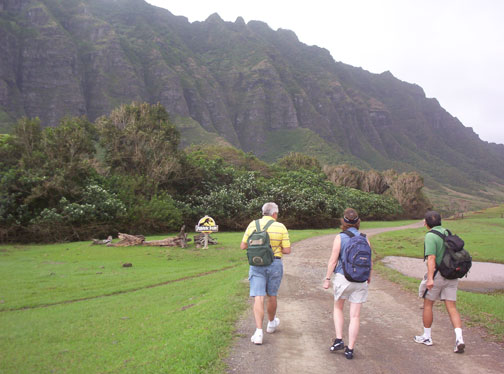 |
An unexpected highlight of the eco-tour was passing by the spot where many movies and television shows are filmed. In this case, Jurassic Park. | |
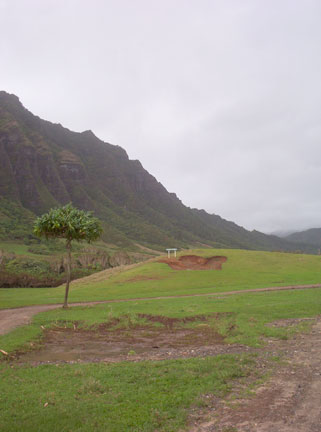 |
Recognize the footprint. This is where the opening sequences of the movie Godzilla were filmed. | |
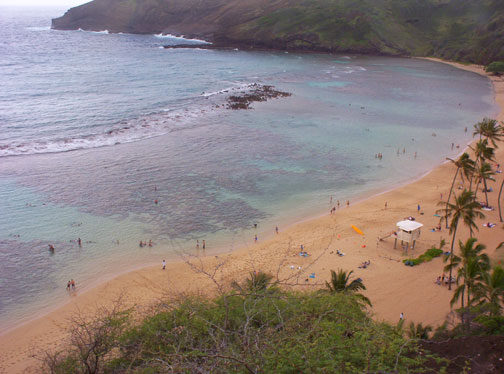 |
Hanauma Bay!
Hanauma Bay is a public beach just outside of Honolulu. This natural beach was created from erosion as well. Once the spot a volcanic eruption, after thousands of years the ocean waves wore the rock away. Today we are left with the best beach in America as voted by the Travel Channel. The roadway is at top of the cliffs, where I took this picture. |
|
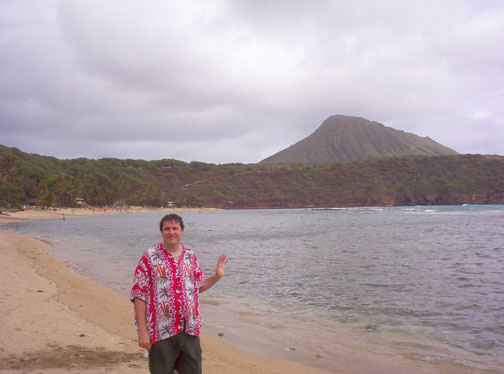 |
So why is this the best beach? The water gets relatively deep quickly, and just feet off the shore line is a natural coral reef with millions of tropical fish. The fish were so close and so plentiful that if you stuck out your hand, you could easily touch them. The corals can be seen better in the image above. | |
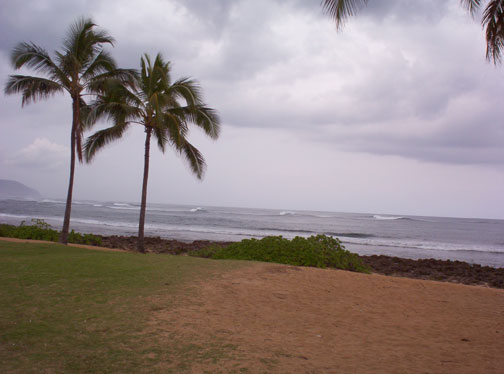 |
The way Oahu is shaped combined with the ocean currents makes the north shore of Oahu a place where 30-foot waves are common (as seen here). | |
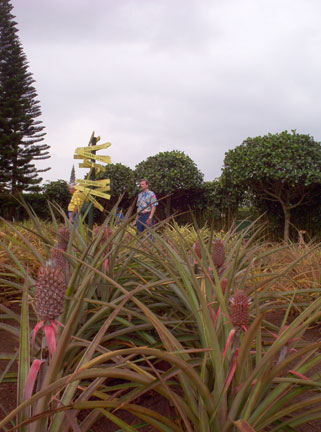 |
At the Dole Pineapple Plantation there are over 4000 acres of pineapple. Pineapples take 1.75 years to grow and were once considered a fruit for royalty. | |
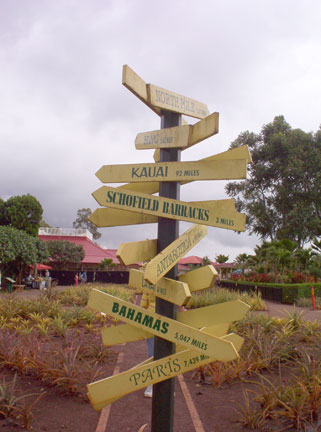 |
OK, so Florida isn't on this sign, but the Bahamas are close enough! | |
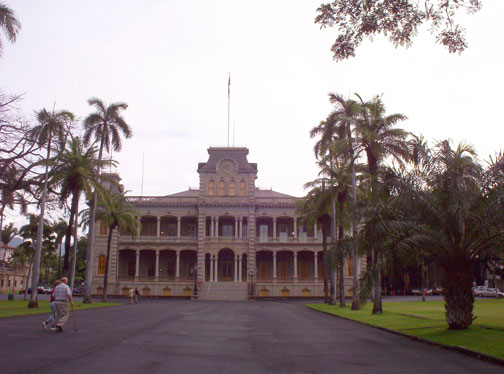 |
The Hawaiian Royal Palace. Before annexation in 1893 by America, Hawaii was a country with its own Kings and Queens. | |
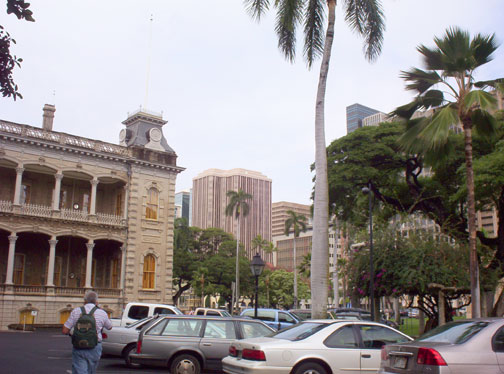 |
The Royal Palace is located in what is now Downtown Honolulu. | |
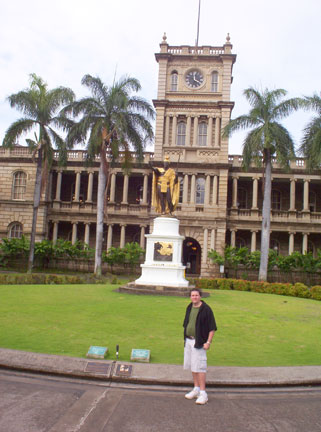 |
Across the street is the State of Hawaii's Supreme Court with the golden statue of King Kamehameha the first. | |
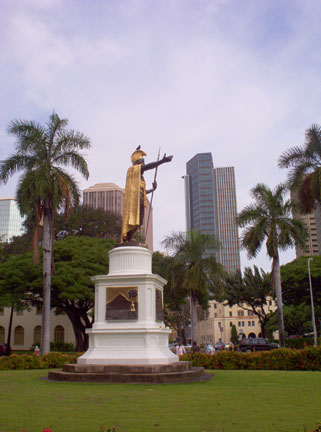 |
Side view of the golden statue. | |
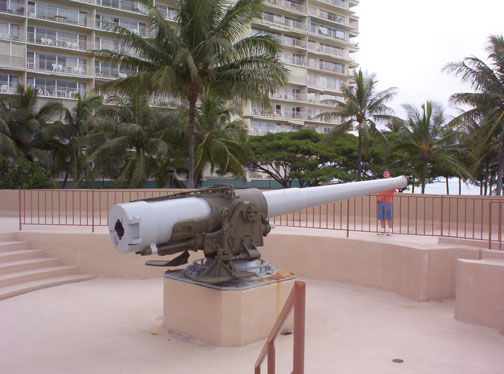 |
Remember those cannons from 1900? A few remain on display at the State of Hawaii military museum. | |
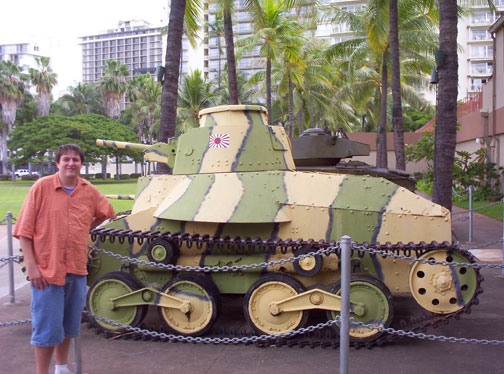 |
A Japanese WWII tank that would have held 4 persons. Like my improperly buttoned shirt? |
|
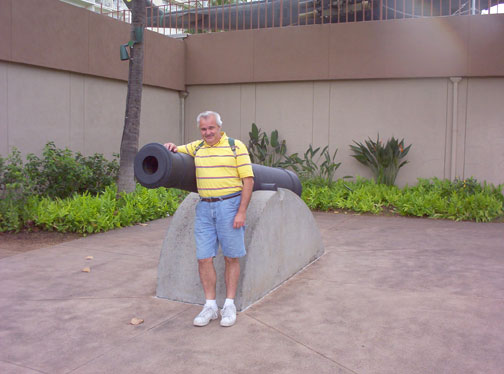 |
My father standing next to a Royal Hawaiian cannon, used during the late Hawaiian Monarchy's. | |
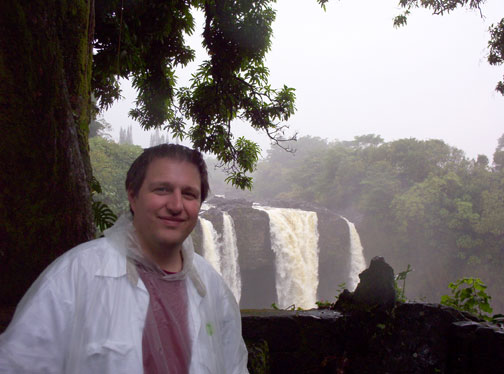 |
We were flown on Aloha airlines to the big island of Hawaii, where we started the tour off at volcano created waterfalls in the city of Hilo. | |
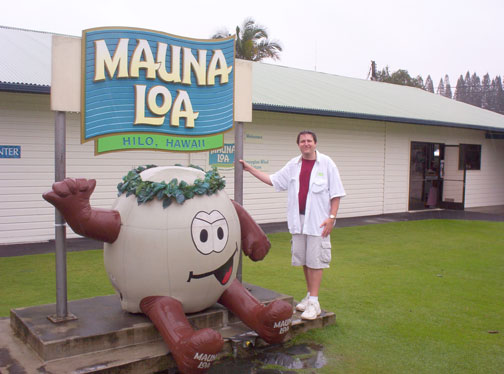 |
Next it was off to the Macadamia Nut factory. One of only two places in the world that grow the nuts. The other place is in Australia. | |
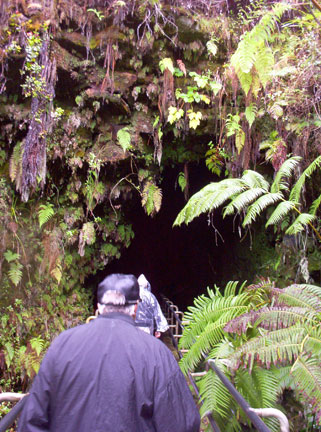 |
Going into a lava tube, and ancient underground river of lava that only became known to the world after centuries of erosion. | |
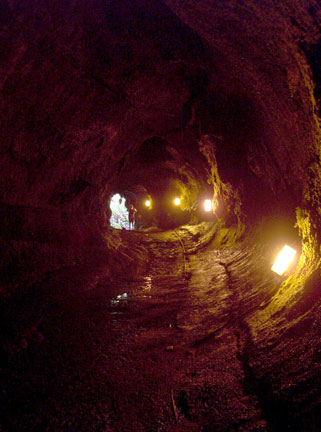 |
In the lava tube. the length of this tube is 3 miles long. We only went about 1 mile because it then becomes to narrow to walk. | |
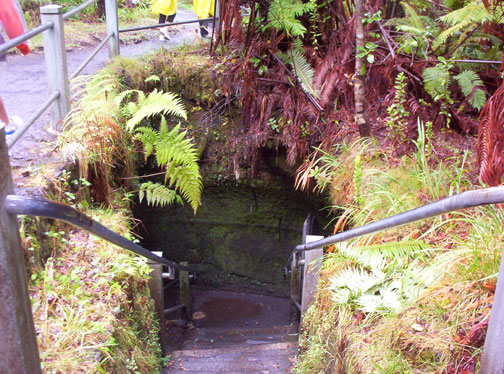 |
Coming out the other end. | |
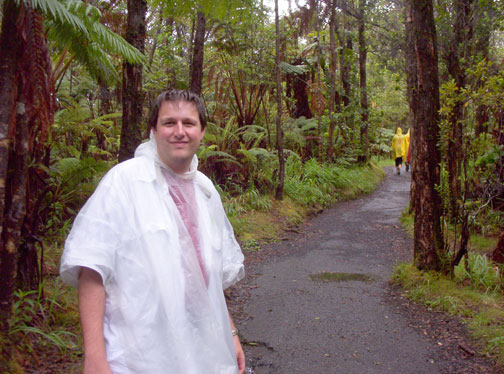 |
Lava rock is full of minerals which are excellent sources of fertilization. Over the years this has caused a rainforest to grow. This day was rainy, hence the rain jackets. | |
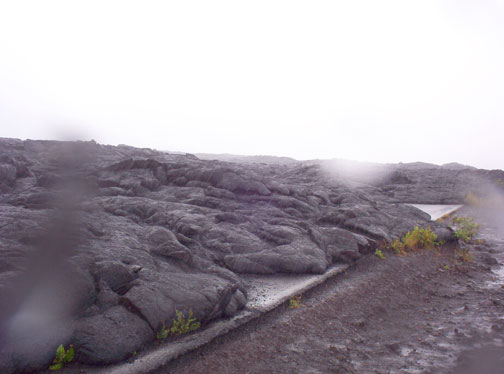 |
The next stop was to the site where in 1993 lava demolished over 300 homes. You can see the remains of a roadway under the lava rock. | |
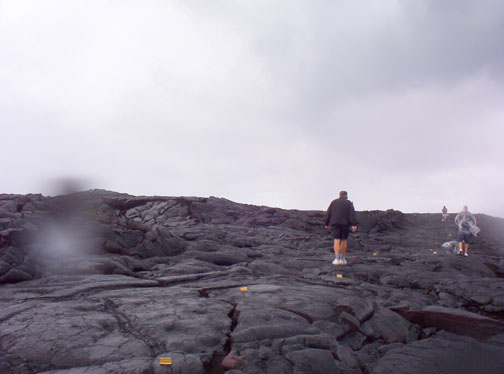 |
My father walking on the lava. In designated area the rock is completely hardened and safe to walk on. In other areas the rock is still hot and potentially deadly. |
|
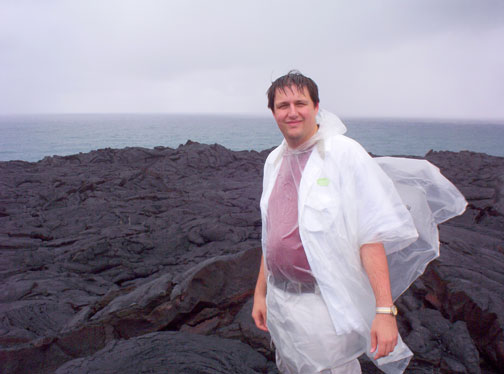 |
Me standing next to the ocean, on the lava rock. It looks dirty and chalky but it actually is clean. Shoes do not get dirty, and chalky bits slip through your fingers like sand. | |
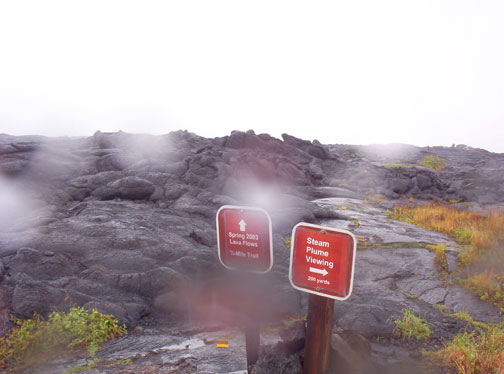 |
Warning signs of danger. Lava still flows into the ocean today at a site just 3 miles from away. | |
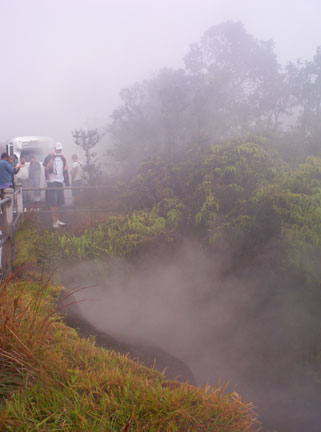 |
Since the lava is still flowing underground today, the lava heats up the ground, causing steam to appear out of nowhere. | |
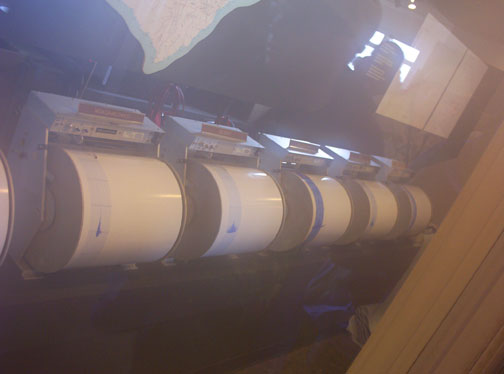 |
At the volcano observatory, these seismographs show that days activity. When we were there. | |
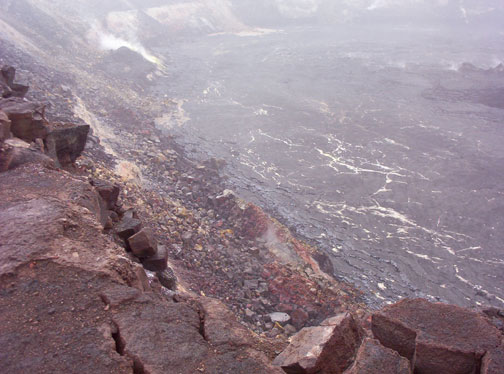 |
Looking into the Volcano. The lava hasn't erupted from the top since 1924./ Rather, it flows out the side of the volcano. | |
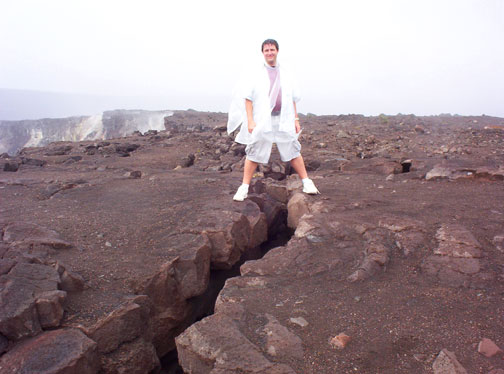 |
Doing what the sign says I shouldn't. This crack was formed by a recent earthquake, and is next to the rim of the volcano seen in back. | |
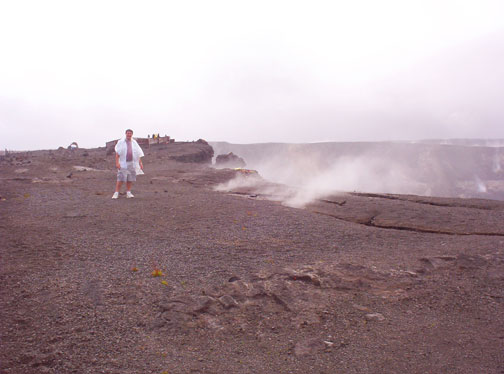 |
Standing next to the edge of the volcano, next to more steam vents. | |
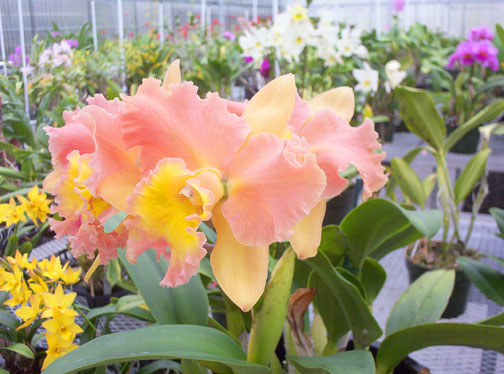 |
The final stop on the volcano tour was an orchid nursery. Thousands of the exotic plants everywhere. | |
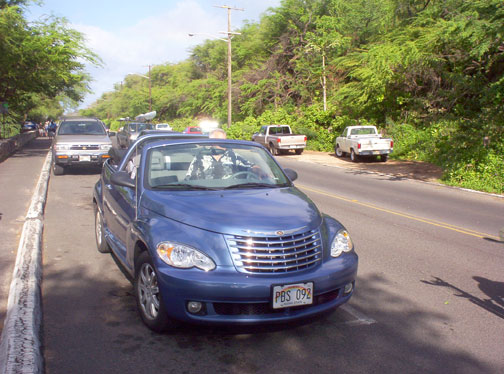 |
On our last day we had nothing to do so we rented a PT Cruiser Convertible and drove all around Oahu, about 200 miles. | |
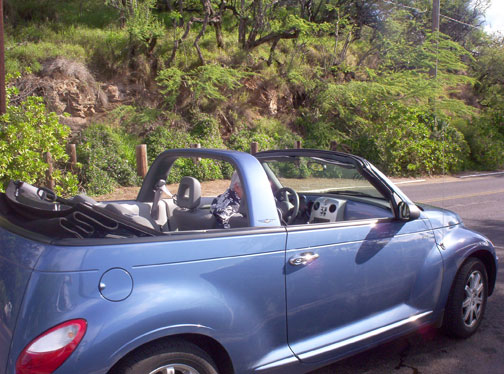 |
The perfect day!
Temperatures in the 70's, and gentle ocean breeze. |
|
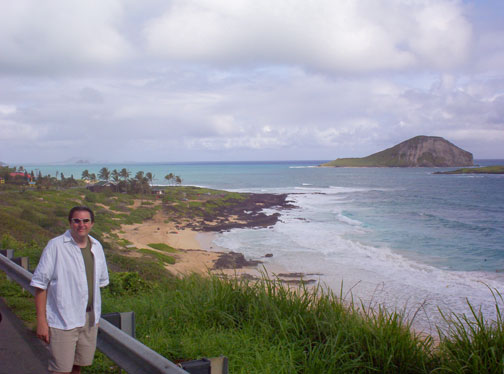 |
The north shore of Oahu | |
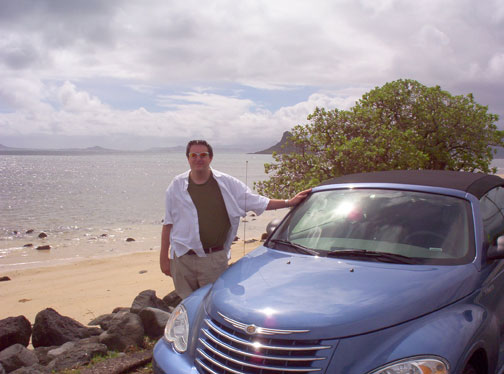 |
There were brief moments of drizzle, so we had the top up. | |
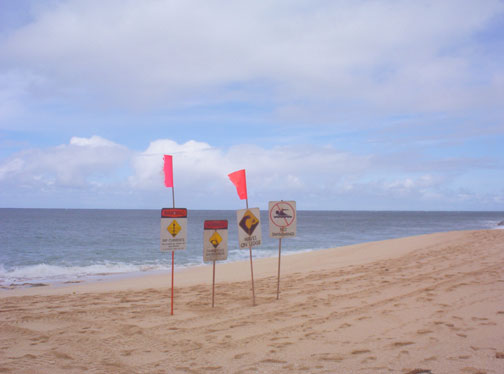 |
This beach is where the biggest waves occur. It is so dangerous that signs are posted to warn you about death and rip-currents. | |
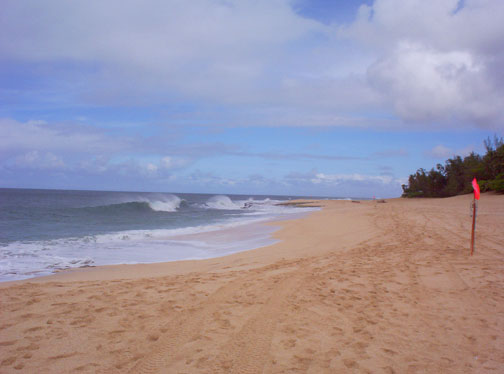 |
||
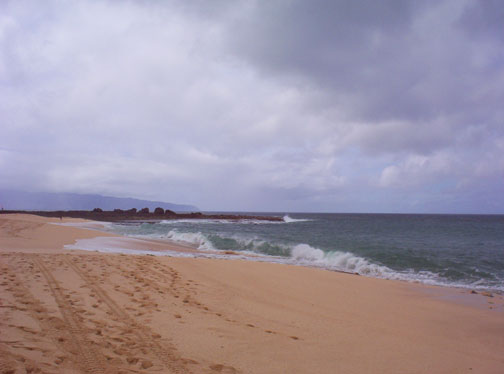 |
||
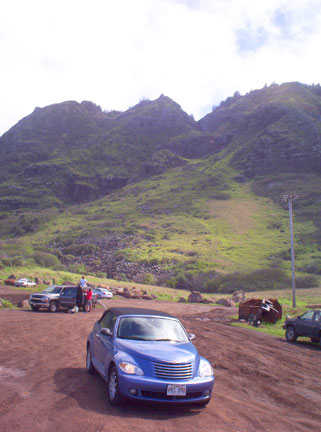 |
At the northwestern most tip Oahu. A popular hangout for locals. | |
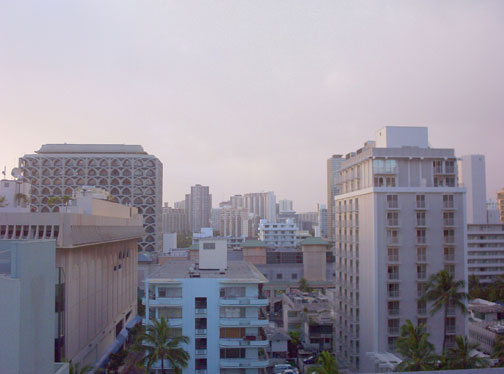 |
The skyline of Waikiki and Honolulu. |
|
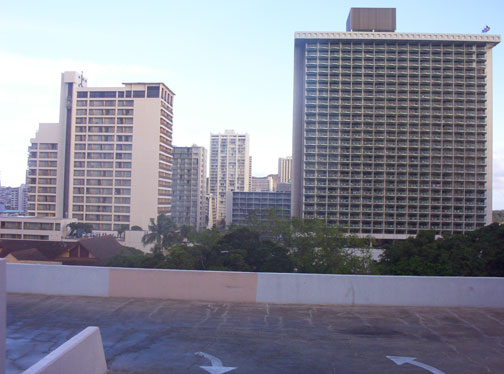 |
The lava rock is so thick that Hawaii is able to support such high-rises. | |

